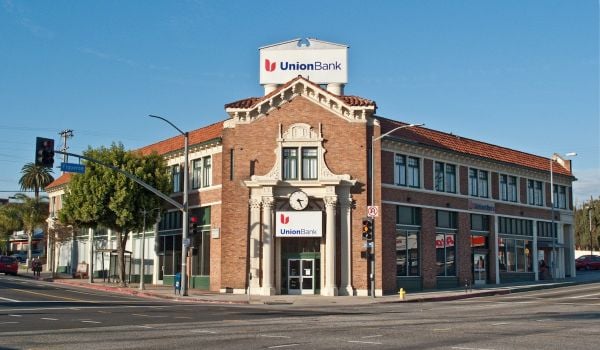The five brothers of the Shina family emigrated from Iraq to the United States more than 30 years ago. They purchased their first grocery store, at 14424 Schaefer Highway on the west side of Detroit, in 1994. They now own and operate 14 grocery stores throughout the metro area.
On Wednesday last week, their original store celebrated a grand reopening after expansion, renovation and renaming. Now known as Imperial Fresh Market, it’s nearly doubled in size, from around 20,000 square feet to around 40,000. The supermarket now includes space for locally sourced products, expanded fresh meat and produce sections, a bakery, a deli, a more extensive selection of prepared foods, and an in-store pharmacy. Seventy percent of the location’s customers, most of whom are African-American, utilize the Supplemental Nutrition Assistance Program (SNAP), or food stamps.
Detroit Mayor Mike Duggan came to celebrate the occasion in the usual way — with a ribbon cutting.
Capital Impact Partners, a community development financial institution (CDFI) based in Arlington, Virginia, was the main financier behind the project, but their part in this story goes beyond finance. It includes the grunt work of advocating for the policies and programs that make ribbon cuttings like this one possible in historically marginalized communities all around the country.
“I spent some time on the hill in the beginning of my career,” says Scott Berman, director of policy and development at Capital Impact Partners. “I put myself back in their shoes again when I go meet with members of Congress or their staff.”
The first thing Berman shows a member of Congress: Capital Impact’s direct investments in that politician’s district or state. Across the U.S., in 2014, about half that lending was in education, creating or preserving around 15,100 charter school seats. About a fifth of their lending was in healthcare, to institutions that collectively served more than half a million patients. They also financed or assisted in the development of 161 units of affordable housing, and helped create 1,274 jobs.
“Then I show them the programs that allow us to finance those things,” he says.
In the case of Imperial Fresh Markets, much of the financing for the expansion came from a $5.5 million New Markets Tax Credit. (For NMTC deals, the U.S. Treasury gives CDFIs or other community development groups authority to distribute a specific amount of federal tax credits to private investors, such as banks, when they make an investment in the CDFI or in a separate pool of capital the CDFI controls. Each NMTC investment must be re-deployed as capital, for any number of projects, in the community within a year, typically to start up or scale up businesses to create jobs in low-income areas.) In 12 rounds of allocations since the NMTC program was created in 2000, the U.S. Treasury has awarded Capital Impact seven tax credit allocations totaling $492 million.
The Shina brothers plan to add 35 new employees to serve their newly expanded Imperial Fresh Market, doubling the number of jobs at the location.
Capital Impact also provided another $3.3 million loan to finance the Imperial Fresh Markets expansion and renovation. This loan was made possible by a grant from the Healthy Food Financing Initiative, another federal program for which Capital Impact advocates.
They don’t do all that advocacy alone.
The Philadelphia-based Opportunity Finance Network (OFN), with over 200 member CDFIs, has long been an industry voice. For example, OFN has long clamored for an increase in the budget of the CDFI Fund, the arm of the U.S. Treasury responsible for certifying CDFIs as well as providing a number of programs that have become integral to the work of both large and small CDFIs around the country. (The CDFI Fund administers the NMTC program.)
Capital Impact Partners also works with other CDFIs directly, such as the Low Income Investment Fund (based in San Francisco), The Reinvestment Fund (based in Philadelphia) and IFF (based in Chicago), on policy advocacy. CDFIs also commonly advocate with groups representing their lending clients, such as community health clinic advocates and charter school groups.
Policy advocacy is such an integral part of all CDFIs work that Aeris, which provides independently verified ratings for CDFIs, includes a “Policy Plus” designation alongside its social impact and financial strength and performance ratings. As it has every year since 2007, Capital Impact just received the highest possible social impact and financials ratings, as well as a Policy Plus rating.
“Policy Plus means the CDFI can demonstrate they played a leadership role in policy changes that can improve the communities where they serve, or that they’ve advocated against policies that would harm communities,” says Paige Chapel, CEO of Aeris.
Aeris looks at four aspects to determine whether to award a Policy Plus rating: how integral policy work is to organizational strategy; if the CDFI’s playing a leadership role; whether there’s devoted resources, such as a staffer, target to policy; and if there actually have been some policy wins.
Since they began rating CDFIs, Chapel says consistently about half have received the Policy Plus rating, although just about all the CDFIs they rate participate in policy advocacy in at least some small way.
Chapel and Berman both mention the bipartisan support that CDFIs have historically received. That’s due in part to their demonstrable hyperlocal impact. It’s also due to the across-the-aisle appeal of providing public dollars to community-driven lending institutions that can recycle those dollars in marginalized communities year after year, decade after decade.
In the federal budget and tax bills that passed through with less drama than usual this month, CDFIs have scored a stunning string of victories. The CDFI Fund’s allocation increased from last year’s amount of $230.5 million to $233.5 million (the largest it’s ever been), including $22 million for the Healthy Food Financing initiative. The CDFI Bond Guarantee Program was continued at $750 million through fiscal year 2016. And the New Markets Tax Credit program is currently set for an extension of $3.5 billion in annual credit authority through 2019.
That’s a lot of ribbon cuttings.
The Equity Factor is made possible with the support of the Surdna Foundation.

Oscar is Next City's senior economic justice correspondent. He previously served as Next City’s editor from 2018-2019, and was a Next City Equitable Cities Fellow from 2015-2016. Since 2011, Oscar has covered community development finance, community banking, impact investing, economic development, housing and more for media outlets such as Shelterforce, B Magazine, Impact Alpha and Fast Company.
Follow Oscar .(JavaScript must be enabled to view this email address)

















